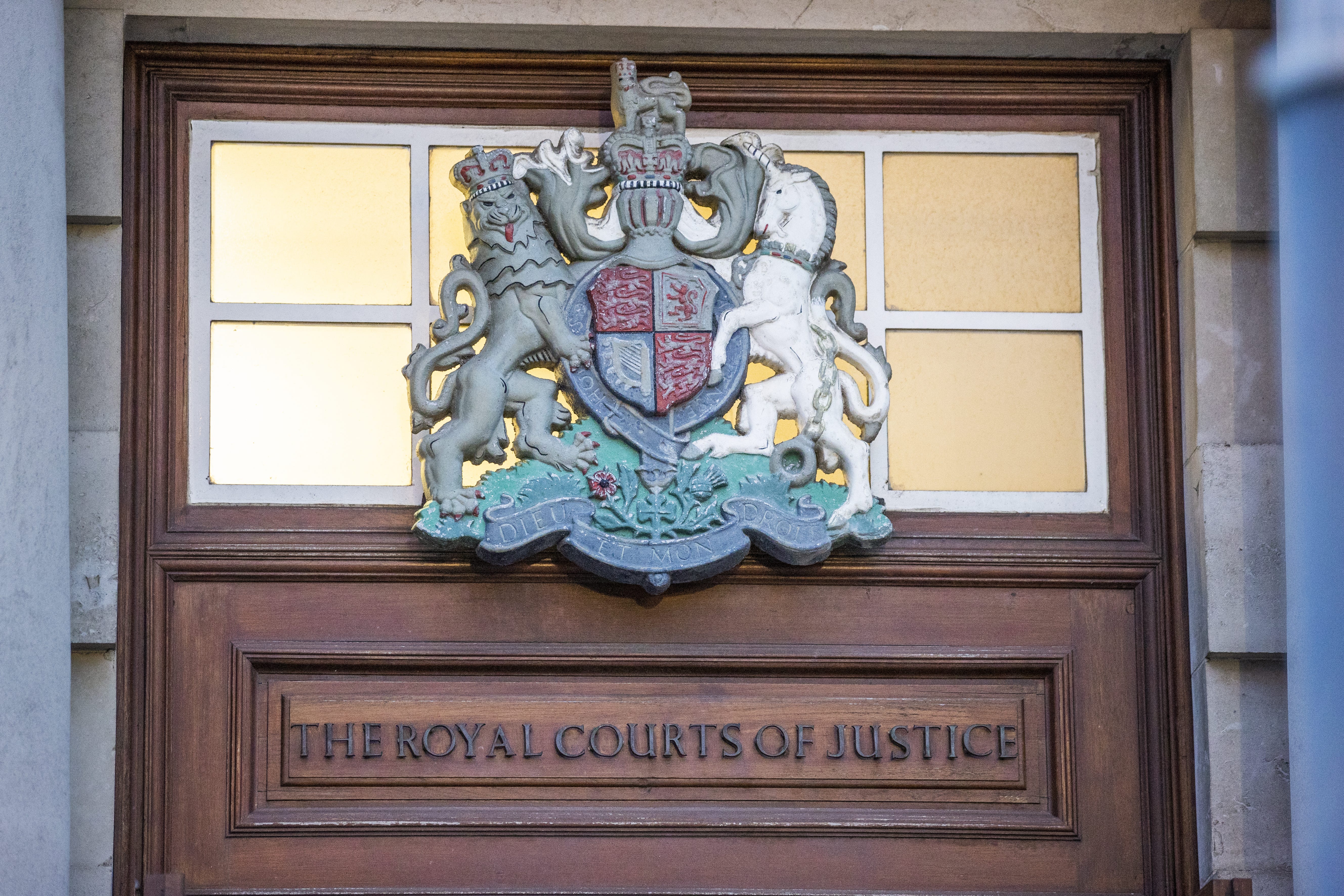Ex-Northern Ireland chief justice allegedly ‘disliked Jews as much as Catholics’
Concerns were raised about Robert Lowry, who presided over scores of non-jury trials of Republicans during the Troubles, newly released files reveal.

Your support helps us to tell the story
From reproductive rights to climate change to Big Tech, The Independent is on the ground when the story is developing. Whether it's investigating the financials of Elon Musk's pro-Trump PAC or producing our latest documentary, 'The A Word', which shines a light on the American women fighting for reproductive rights, we know how important it is to parse out the facts from the messaging.
At such a critical moment in US history, we need reporters on the ground. Your donation allows us to keep sending journalists to speak to both sides of the story.
The Independent is trusted by Americans across the entire political spectrum. And unlike many other quality news outlets, we choose not to lock Americans out of our reporting and analysis with paywalls. We believe quality journalism should be available to everyone, paid for by those who can afford it.
Your support makes all the difference.Concerns were raised about a former chief justice of Northern Ireland over allegations he “dislikes Jews as much as he dislikes Catholics”, according to newly released confidential documents.
Mr Justice Robert Lowry, who presided over scores of non-jury trials of Republicans during the Troubles, held the role between 1971 and 1989.
His duties included sitting as the president of the High Court, which became the focus of a discussion on judicial appointments between leading Belfast-based Catholic lawyer PJ McGrory and senior Irish Department of Foreign Affairs official Daithi O Ceallagh in 1985.
Mr McGrory believed that Ronnie Appleton, a highly-regarded lawyer who led the successful prosecution of the Irish National Liberation Army’s Dominic McGlinchey, was “a strong contender” for a bench appointment.
Mr Appleton played “an essential role” in McGlinchey’s conviction because he came up with “the brilliant idea” of getting an affidavit filed to a Dublin court when he had been charged with IRA membership.
Mr McGrory told Mr O Ceallagh that McGlinchey, who had admitted being a member of an IRA unit in South Derry, could not have been convicted without those affidavits, which were made after the request for extradition to Northern Ireland.
Mr O Ceallagh noted in the Department of Foreign Affairs file: “The McGlinchey trial had important political consequences for Unionists and Lowry tried to ensure a conviction. Appleton is therefore, as it were, owed one.”
However, the Irish official was told by Mr McGrory that Mr Appleton’s candidacy for a High Court position faced a problem.
Two factors militate against him. Firstly, he is making loud noises that the fee he is getting for the McGlinchey trial is not commensurate with his achievement. Secondly, he is a Jew and Lowry is reputed to dislike Jews as much as he dislikes Catholics
In the note of Mr McGrory’s comments, Mr O Ceallagh wrote: “Two factors militate against him. Firstly, he is making loud noises that the fee he is getting for the McGlinchey trial is not commensurate with his achievement.
“Secondly, he is a Jew and Lowry is reputed to dislike Jews as much as he dislikes Catholics.”
Mr McGrory, who would later become internationally known for his work during the inquest into the killings of three IRA members in Gibraltar, was sharply critical of Mr Justice Lowry and accused him of choosing judges to meet political ends.
It was Mr McGrory’s belief that internment without trial would be a better option than Diplock courts, where people would be automatically locked up if they were found with weapons or explosives.
“Even a special mobile police force, designed to deal with the terrorist threat using their weapons relatively freely, would be better than the use of the courts in a manner that effectively politicises them,” Mr O Ceallaigh reported him as saying.
Mr McGrory was also reported as believing that “the courts have been manipulated in an unprecedented fashion” by him, especially by exploiting the lack of legal transcribers.
He complained that the lack of transcripts of judgments had delayed the hearing of appeals to such an extent “that the appellants will nearly all have served their sentences before the appeal is heard”.
Given his position as Lord Chief Justice, Mr Justice Lowry was able to control which judges heard Diplock cases, where people facing alleged terrorist offences were tried before a single judge in a non-jury trial.
The confidential Department of Foreign Affairs note on the meeting with Mr McGrory continues: “It is Lowry who ensures that particular judges hear particular trials for the purpose of ensuring that the judgment serves his political end.”
– This article is based on documents in 2024/28/57.